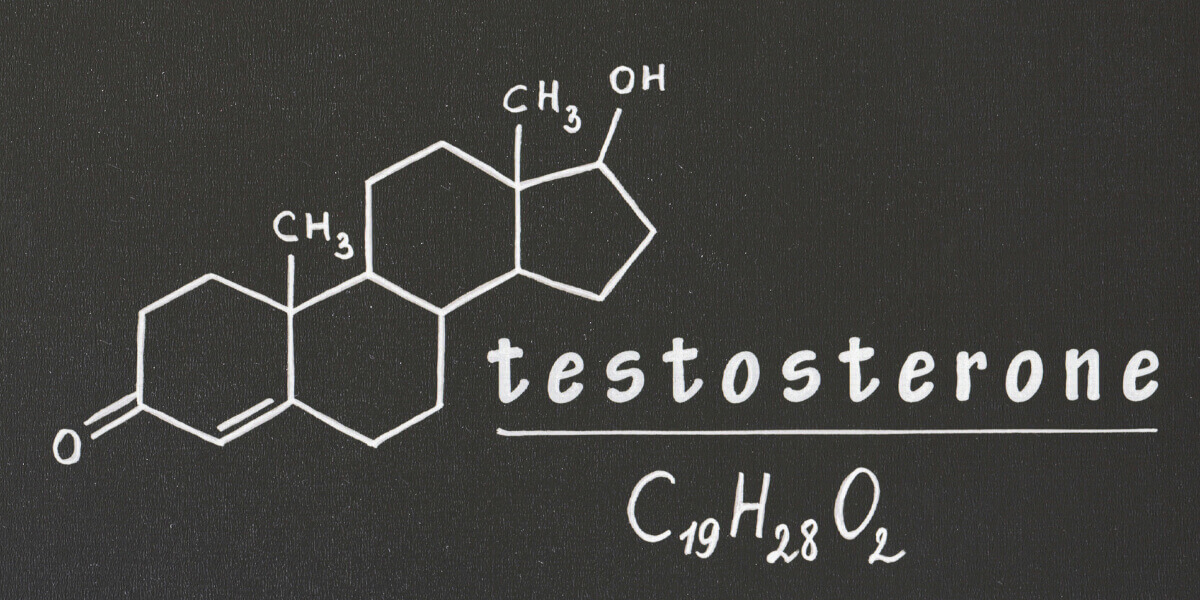Testosterone is the primary sex hormone in men. Formed primarily in the testicles, it stimulates sperm production as well as a man’s sex drive. It also helps build muscle and bone mass. Testosterone production typically decreases with age by about 1% per year from the age of 30. Low testosterone is the underproduction or lack of production of testosterone and can be caused by a variety of reasons and be responsible for a wide assortment of symptoms. Low testosterone is relatively common in the over 40 age group, affecting up to 12% of men aged 50 and over, and can benefit greatly from testosterone deficiency treatment.
Those more likely to suffer from testosterone deficiency are persons with preexisting health concerns such as diabetes (up to 50% of men with type 2 diabetes have low testosterone levels), obesity, high blood pressure, raised cholesterol levels, heart disease, and chronic inflammatory conditions (such as asthma or arthritis). Some prescription medications will also lower testosterone production.
Symptoms of testosterone deficiency
Symptoms of testosterone deficiency may include a lowered sex drive, difficulty in achieving and maintaining an erection (although it may not be the only factor and any difficulties with erections should be investigated by your GP), fatigue, loss of muscle mass, increased body fat, decreased bone mass, and mood swings. Importantly, testosterone deficiency is not just a physical disorder; it can have a devastating impact on mental and emotional well being.
The key factor is to decipher why the levels are low and then in some cases, testosterone levels can be restored by making lifestyle changes, for instance increasing activity levels with HIIT exercise and lifting weights can help stimulate production. Improving diet and monitoring portion size can help, as obesity is one of the leading causes of low testosterone. Try to include foods rich in vitamin D, zinc, and magnesium as these all assist in maintaining healthy bodily functions. Try to avoid consuming large quantities of alcohol as more than the recommended units imbibed per week can directly impact testosterone and sperm quality. Reducing stress levels is really beneficial as when the body produces high levels of cortisol it downregulates testosterone production. Sleep is another important factor in testosterone production; although the ideal amount of sleep varies from person to person, one study found that sleeping only 5 hours per night was linked to a 15% reduction in testosterone levels.
Testosterone Therapy
However, if making lifestyle changes is not enough to restore normal function then the good news is that there is an option for testosterone deficiency treatment or TRT. There are several ways to administer testosterone therapy: testosterone gels, monthly injections, patches, and weekly injections. Only specialised GPs and endocrinologists are able to prescribe TRT, and they will discuss the best option for you based on your circumstances.
Sadly, for some patients, there is quite a discrepancy between what are considered normal and low levels depending on where in the country you are tested. The British Society of Sexual Medicine guidelines state that if the patient’s testosterone level is lower than 8 nmol/L based on 2 separate levels taken between 8 AM and 11 AM, then they usually require TRT. Testosterone levels higher than 12 nmol/L do not require testosterone deficiency treatment but does not discount that the patient may be symptomatic and will benefit from some lifestyle adjustments. The guidelines also recommend that if the levels are between 8 to 12 nmol/L then they might require a trial of TRT for a minimum of 6 months based on symptoms.
Unfortunately, the NHS follow local guidelines and the threshold is often the minimum of 8nmol/L or below before a GP will refer the patient to a specialist GP, such as Dr Jeff, or to the local hospital endocrinologist. The worst thing about the fluidity of the guidelines is that, according to Dr Jeff Foster, a patient may have testosterone levels of 15 nmol/L and be told there is nothing wrong but feel absolutely rubbish and be symptomatic of testosterone deficiency. This is why sometimes the figures can not be taken as a stand-alone marker, and the patient’s general health and condition is a crucial factor when considering treatment.
If you do have any of the symptoms of low testosterone it is important that you visit your doctor for a simple blood test. The good thing is that even if you are over the NHS guidelines then there is no need to feel despondent, you can book an appointment with a men’s health expert who will get to the root of the problem by considering all of the evidence as well as the data and will be able to offer you more choice in your road to recovery and hormonal balance.
About Dr Jeff Foster

A Men’s Health specialist and Medical Director and founder of H3 Health. I’m passionate about raising awareness of all aspects of Men’s Health, and heavily involved in both teaching and health promotion. I’m a committee member of the British Society of Sexual Medicine, and have been involved in writing the most recent national guidelines for testosterone deficiency in men.
Get in touch with Dr Jeff
If you are a prospective patient and wish to see Dr Jeff privately, then you can book an appointment via H3 Health (03309 120769 – National Rate). Alternatively if you are a member of the Media, then please use our contact form for media enquiries.






